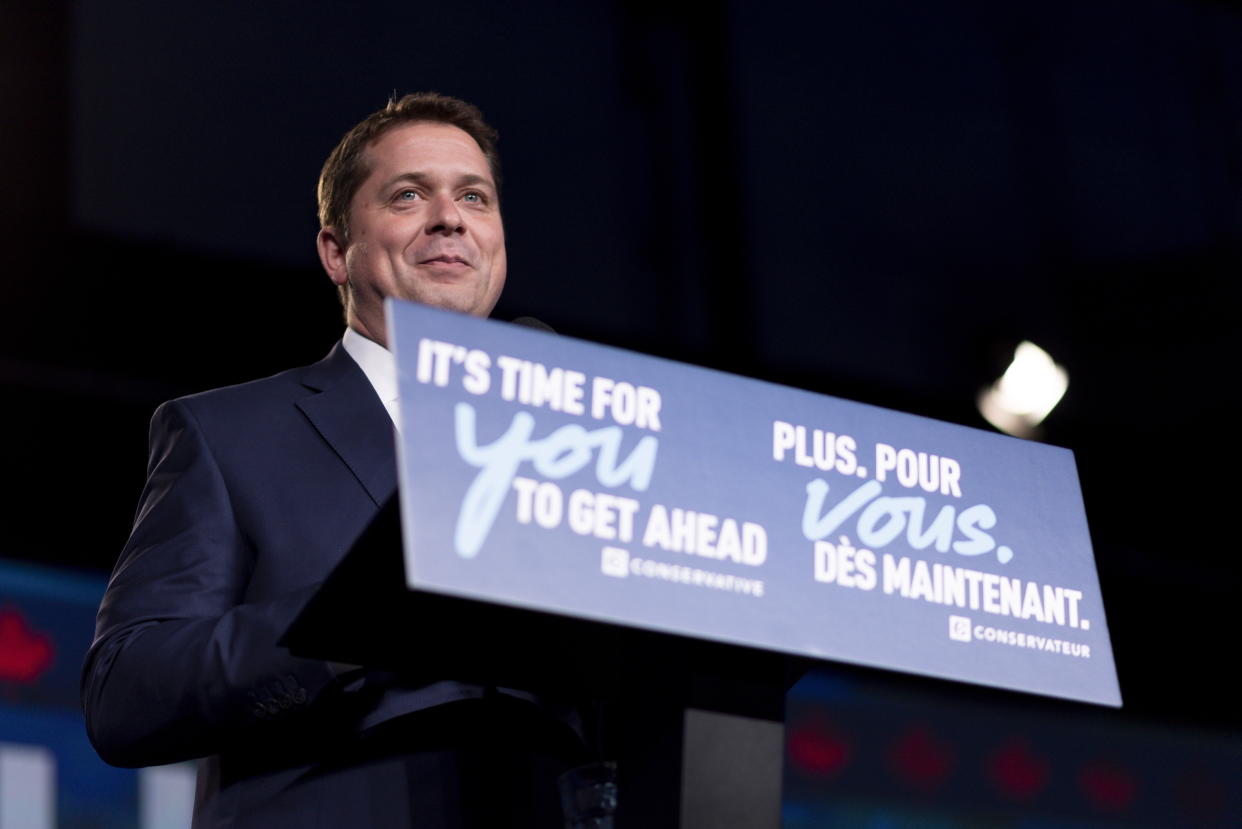Should a party leader resign if faced with election defeat?

Even though Conservatives won the popular vote on Monday night’s election, and gained more seats than last election, many Canadians still think the party’s leader Andrew Scheer should resign.
In a poll conducted by Ipsos for Global News on election night, voters were asked if party leaders should step down or stay on if they didn’t win the most seats. Those taking part in the poll were asked the same question in regards to four of the five federal party leaders: Bloc Québécois Leader Yves-François Blanchet, NDP Leader Jagmeet Singh, Liberal Leader Justin Trudeau and the Conservative’s Scheer.
The poll, which surveyed 9,437 voters, found 63 per cent of them thought Scheer should resign as leader without a majority. Thirty-seven percent felt he should continue on in the role.
Now that Andrew Scheer has not won the most seats, I believe under his own rules, he has to resign?
Well, come on, smirky. Do it.— Scare-ol Channing Tatum 👨🏻🎤💀🎃 (@ThinWhiteDork) October 22, 2019
Mr Scheer,
Thank you for your willingness to serve in public office.
Thank you for the personal sacrifices that you & that your young family have no doubt made.
Now, for the love of Canada, please resign immediately. Tonight.
Sincerely,
Vivian@AndrewScheer #elxn43— Vivian Krause (@FairQuestions) October 22, 2019
If Justin Trudeau can be re-elected after all his corruption and scandals, then Andrew Scheer may be one of the worst candidates to ever run for PM.
Please resign @AndrewScheer . You gave that imbecile a second term on a silver platter. #cdnelxn2019 #cdnpoli— Nicky Pizazz (@NickyPizazz) October 22, 2019
These results are abysmal.
1) SNC-Lavalin
2) Blackface
3) Bloc winning over 30 seats
4) NDP and Greens improving from 2015
And we still lost, and it wasn't even close.
Andrew Scheer needs to resign. TONIGHT. #elxn43 #cdnpoli— Anthony Koch (@Anthony__Koch) October 22, 2019
If you don't win the PM you should resign. Didn't you say that?
— 🇨🇦Kathy 🇨🇦 (@KathyHaight7) October 22, 2019
Alright, I'm gonna take my partisan hat off for a moment and talk about why I think Andrew Scheer should NOT resign OR be pushed out by the #CPC, contrary to the popular belief among my fellow Twitterati.
A lot of it revolves around the fact - Scheer forced a minority. #elxn43— Kyle Hutton (@kylejhutton) October 23, 2019
Tamara Small is an associate professor of political science at the University of Guelph. She says recent political history shows that party leaders weren’t always quick to be cycled through, even after a defeat.
“In the last 20 years, there’s been this new wave of tossing leaders out (after a defeat),” she tells Yahoo Canada.
Pierre Trudeau’s role within the Liberal party went back and forth between Prime Minister and leader of the opposition between 1968 and 1984. John Turner served as Prime Minister for four month after Trudeau, then stayed on as the Liberal leader of the opposition until 1990.
Ed Broadbent, who was the leader of the New Democratic Party of Canada from 1975 to 1989, never won an election. Small says in the early 90s, that changed and the NDP party started to elect new leaders - Audrey McLaughlin, Alexa McDonough, Jack Layton, Tom Mulcair and now, Jagmeet Singh. Overall, Small thinks that a defeat speaks to the strength of a party, rather than the strength of a leader.
“There’s a number of things at play,” she says. “We do know from voting behaviour data that leadership, which we focus on a lot, doesn’t have a massive impact on voter’s choice. The party is quite a bit stronger.”
When a party does have a leader that’s perceived as “weak” — she uses the Liberal’s Stéphane Dion and Michael Ignatieff as examples — that ends up causing more problems within the party.
“What a weak leader does is suppress your own party,” she says. “A really popular leader might do some benefit for you. But a mid-range leader may or may not have a huge impact.”

